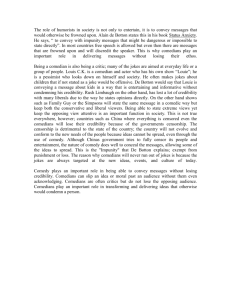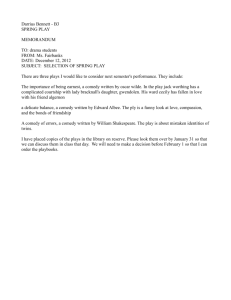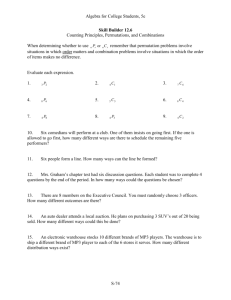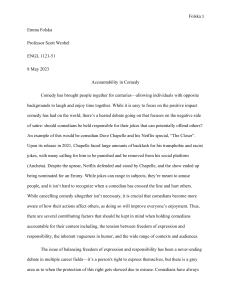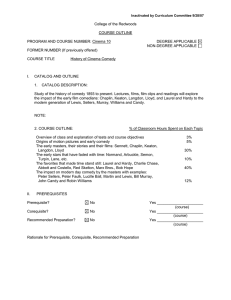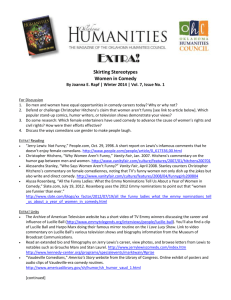Research summary: The Working Lives of Freelance Comedy Performers
advertisement
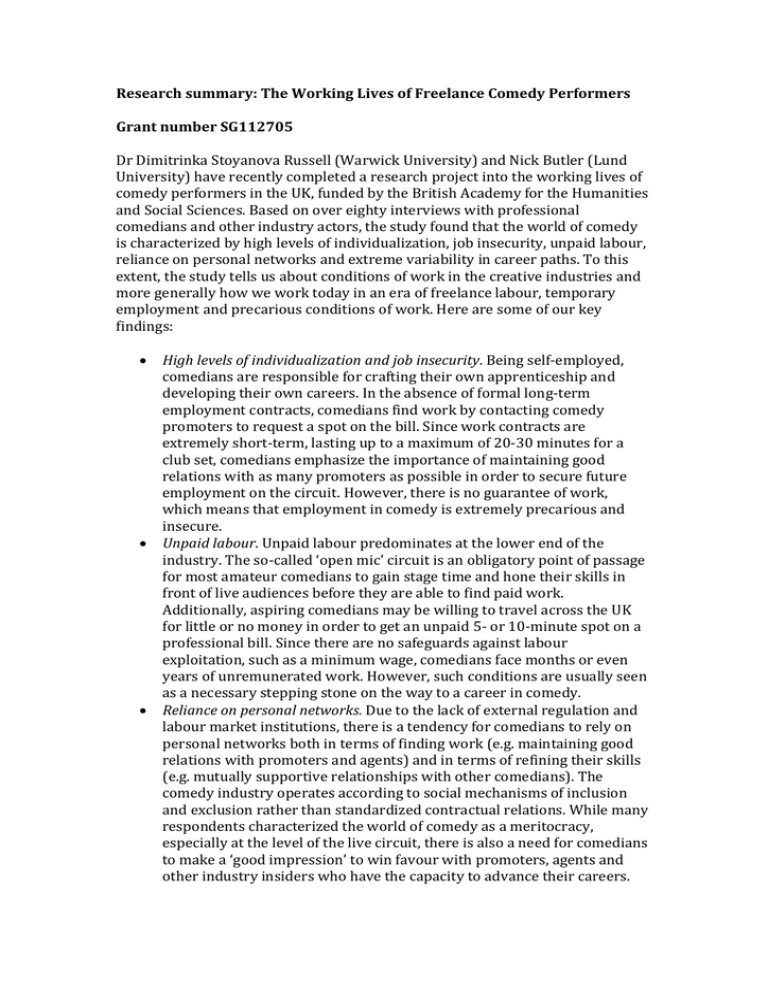
Research summary: The Working Lives of Freelance Comedy Performers Grant number SG112705 Dr Dimitrinka Stoyanova Russell (Warwick University) and Nick Butler (Lund University) have recently completed a research project into the working lives of comedy performers in the UK, funded by the British Academy for the Humanities and Social Sciences. Based on over eighty interviews with professional comedians and other industry actors, the study found that the world of comedy is characterized by high levels of individualization, job insecurity, unpaid labour, reliance on personal networks and extreme variability in career paths. To this extent, the study tells us about conditions of work in the creative industries and more generally how we work today in an era of freelance labour, temporary employment and precarious conditions of work. Here are some of our key findings: High levels of individualization and job insecurity. Being self-employed, comedians are responsible for crafting their own apprenticeship and developing their own careers. In the absence of formal long-term employment contracts, comedians find work by contacting comedy promoters to request a spot on the bill. Since work contracts are extremely short-term, lasting up to a maximum of 20-30 minutes for a club set, comedians emphasize the importance of maintaining good relations with as many promoters as possible in order to secure future employment on the circuit. However, there is no guarantee of work, which means that employment in comedy is extremely precarious and insecure. Unpaid labour. Unpaid labour predominates at the lower end of the industry. The so-called ‘open mic’ circuit is an obligatory point of passage for most amateur comedians to gain stage time and hone their skills in front of live audiences before they are able to find paid work. Additionally, aspiring comedians may be willing to travel across the UK for little or no money in order to get an unpaid 5- or 10-minute spot on a professional bill. Since there are no safeguards against labour exploitation, such as a minimum wage, comedians face months or even years of unremunerated work. However, such conditions are usually seen as a necessary stepping stone on the way to a career in comedy. Reliance on personal networks. Due to the lack of external regulation and labour market institutions, there is a tendency for comedians to rely on personal networks both in terms of finding work (e.g. maintaining good relations with promoters and agents) and in terms of refining their skills (e.g. mutually supportive relationships with other comedians). The comedy industry operates according to social mechanisms of inclusion and exclusion rather than standardized contractual relations. While many respondents characterized the world of comedy as a meritocracy, especially at the level of the live circuit, there is also a need for comedians to make a ‘good impression’ to win favour with promoters, agents and other industry insiders who have the capacity to advance their careers. Extreme variability in career paths. Although the barriers to entry are extremely low – virtually anyone can get stage-time on the open mic circuit without prior experience – it can take comedians between one and five (or more) years to progress from amateur to part-time to full-time comedian. Although career paths are unstructured and fragmented, the Edinburgh Fringe Festival provides an opportunity for advancement within the industry, such as gaining a comedy agent or moving into television and radio. Putting on an hour-long solo show can be extremely expensive due to venue, accommodation and marketing costs and may lead comedians into serious debt. But the Edinburgh Fridge Festival is also seen as an invaluable means of improving one’s skills as a performer due to the intensity and frequency of performance and raising one’s profile among the big players in the industry beyond the club circuit. The full results of the study are currently being written, and will be finalized by 2017. If you would like any further information on the project, please do not hesitate to contact Dr Stoyanova Russell (Dimitrinka.Stoyanova@wbs.ac.uk) or Dr Butler (Nick.Butler@fek).
